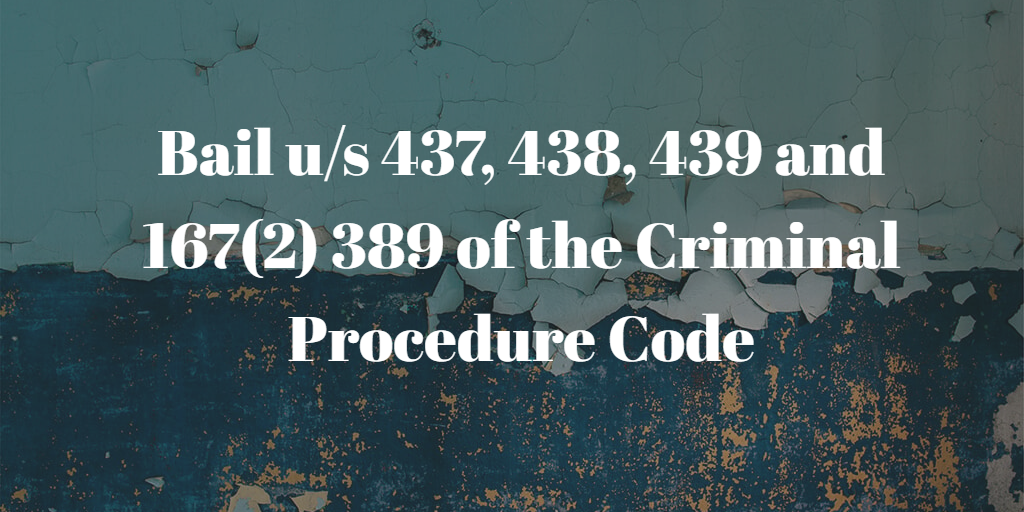Bail u/s 437, 438, 439 and 167(2) 389 of the Criminal Procedure Code

Table of Contents
Section 437: Bail in Non-Bailable Offences
Section 438: Anticipatory Bail
Section 439: High Court or Court of Session's Powers Regarding Bail
Section 167(2): Bail When Investigation is Not Completed Within the Specified Time
Section 389: Bail Pending Appeal
1. Section 437: Bail in Non-Bailable Offences
Section 437 of the CrPC provides guidelines for granting bail in non-bailable offences. Under this provision, the court may grant bail if it deems fit, considering factors such as the nature of the crime, the accused's character, and the likelihood of the accused fleeing. However, bail may not be granted if the accused faces a reasonable chance of being convicted and the offence is punishable with death or life imprisonment.
2. Section 438: Anticipatory Bail
Section 438 of the CrPC deals with anticipatory bail, which can be sought by an individual who believes they may be arrested on accusations of a non-bailable offence. This provision allows the accused to obtain bail before being arrested, providing relief from potential harassment during the arrest and detention process.
3. Section 439: High Court or Court of Session's Powers Regarding Bail
Section 439 empowers the High Court or Court of Session to grant bail, including in cases where a person has been denied bail by a lower court. These higher courts can also impose conditions on bail or revoke bail if deemed necessary.
4. Section 167(2): Bail When Investigation is Not Completed Within the Specified Time
Section 167(2) of the CrPC provides for bail when the investigation is not completed within the specified time. If the investigating agency fails to complete the investigation within the stipulated period (usually 60 or 90 days, depending on the offence), the accused is entitled to seek bail.
5. Section 389: Bail Pending Appeal
Section 389 of the CrPC deals with bail pending appeal. This provision allows an accused person to seek bail when they have filed an appeal against their conviction. The appellate court has the discretion to grant or deny bail based on factors such as the nature of the offence, the likelihood of the accused absconding, and the chances of success in the appeal.
Conclusion
Understanding the different bail provisions under the Criminal Procedure Code is essential for navigating the complexities of the legal system. By becoming familiar with Sections 437, 438, 439, 167(2), and 389, you can better comprehend your legal rights and options in various situations. However, it is always recommended to consult an experienced criminal lawyer when dealing with bail-related matters to ensure the best possible outcome for your case.


